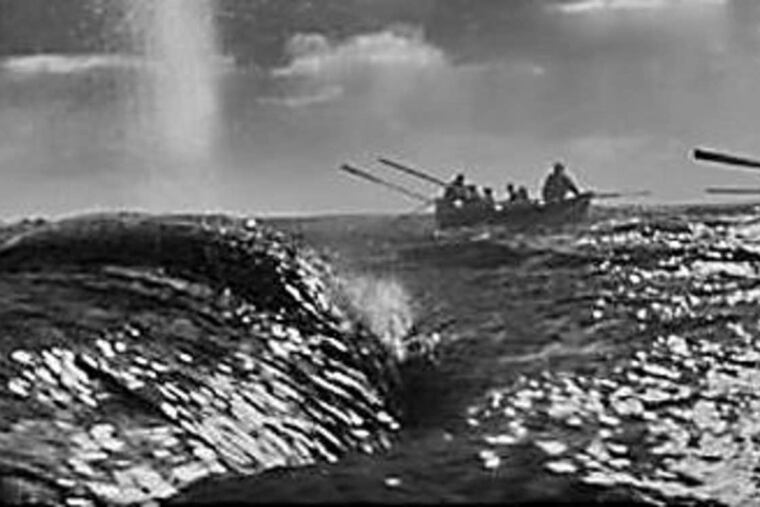Ron Howard talks about his new movie 'In the Heart of the Sea'
Sea adventure is based on a real-life incident in 1820 that became the basis for Moby Dick.

An intuitive Ron Howard has somehow sensed that the reporter on the other end of the line is a full-on Discovery Channel nerd.
So, as we're talking about Howard's new whaling movie "In the Heart of the Sea," a voyage-of-survival story that has drawn comparisons to Howard's "Apollo 13," he hits me with this fact: NASA actually used whale oil on the Apollo missions.
"It was used as a lubricant, because the oil derived from the sperm whale's brain has amazing properties of viscosity that are very hard to synthesize," Howard said. "That's why oil from a whale's brain is so highly prized, it's why you see the men in 'Heart of the Sea' go to such harrowing lengths to secure it."
Howard had me at viscosity. What captured me about the movie, however, was its portrait of the oil industry as it existed in 1820 - the dangerous and grisly business of men in small 19th century ships chasing large whales in stormy seas, a thousand miles from shore. (You could get 20 barrels of oil from a whale, and that oil was important to the early U.S. economy, before kerosene and petroleum became widely used.)
It tells the true story of the Essex, a small Nantucket whaler that in 1820 sailed around Cape Horn and into the far reaches of the Pacific, where a gigantic whale attacked and sank the vessel. The ordeal of the Essex inspired Herman Melville to write Moby Dick, but the horrors visited upon the ship and its men - recreated by Howard - were quite real.
Many of the themes that surface in Melville's book were raised by the Essex survivors, as Howard discovered when he pored over their writings and diaries.
"The whalers were asking a lot of sophisticated questions. How could the whale turn on us in that way, are we being punished? Is the whale the hand of God? Is it evil incarnate? Is it in some way connected to the brutality of the industry?"
The journals and the subsequent legal testimony of the ship's officers leave little doubt that the incredible event occurred, and as the men describe.
The Essex was small for a whaling vessel, the harpooned whale was unusually large, Howard notes, and probably rammed the ship as a perceived threat to family of whales in his charge.
"Large males will ram other males, and they had been known to ram boats, and there were lots of stories of large males that were too big and too tough to catch and kill."
The "white whale" of Melville's story becomes a mottled, gray and white creature in "Heart of the Sea."
"They can have a skin condition that can make them appear almost white. We did a lot of research on this, so the encounter has a believable physical reality."
"In the Heart of the Sea" stars Chris Hemsworth as first officer Owen Chase, the ship's natural leader and the man who, when the Essex is destroyed, inspires survivors to endure months at sea, holding on to their dream of returning home to Nantucket.
The story arc has led some to compare "Heart of the Sea" to Howard's "Apollo 13."
"It is a little like 'Apollo 13.' At the outset, [astronaut] Jim Lovell will do anything to get to the moon, then that dream is gone, now it's about getting men home. It's about personal ambition giving way to the necessities of leadership. Of course Tom [Hanks] was great in that role, and I think Chris is great in this as well."